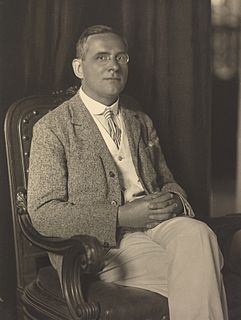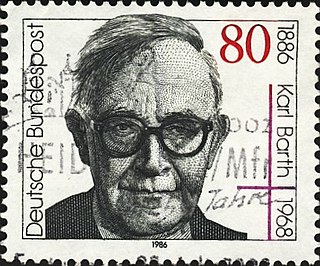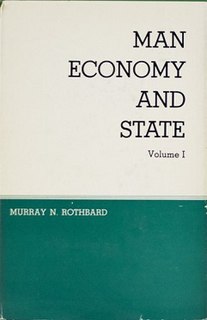Principles of European Tort Law
The unification of European tort and insurance law is the most ambitious goal which the founders of the European Centre of Tort and Insurance Law, the European Group on Tort Law, pursue in cooperation with ECTIL. The broadly-based comparative research resulted in the drafting of “Principles of European Tort Law”, which provide a foundation for discussing a future harmonisation of the law of tort in the European Union. Further, the "Principles" shall form a stimulus for both academics and practitioners and could serve as a guideline for national legal systems, thereby leading to gradual legal harmonisation. Finally, the present isolated tort law regulations, which are at times themselves contradictory, require a uniform concept from the European Union.
The European Group on Tort Law spent more than a decade on preparatory works for the "Principles". These studies have been published in the series "Principles of European Tort Law". The “Principles of European Tort Law” themselves have also already been released in print, accompanied by a commentary and several translations. The online version of the "Principles" in several languages can be found on the Group's website at [www.egtl.org.]

A constellation is an area on the celestial sphere in which a group of visible stars forms a perceived outline or pattern, typically representing an animal, mythological person or creature, or an inanimate object.
At common law, damages are a remedy in the form of a monetary award to be paid to a claimant as compensation for loss or injury. To warrant the award, the claimant must show that a breach of duty has caused foreseeable loss. To be recognised at law, the loss must involve damage to property, or mental or physical injury; pure economic loss is rarely recognised for the award of damages.
Product liability is the area of law in which manufacturers, distributors, suppliers, retailers, and others who make products available to the public are held responsible for the injuries those products cause. Although the word "product" has broad connotations, product liability as an area of law is traditionally limited to products in the form of tangible personal property.
A tort, in common law jurisdiction, is a civil wrong that causes a claimant to suffer loss or harm, resulting in legal liability for the person who commits the tortious act. It can include intentional infliction of emotional distress, negligence, financial losses, injuries, invasion of privacy, and many other things.

Friedrich Albert Moritz Schlick was a German philosopher, physicist, and the founding father of logical positivism and the Vienna Circle.

Karl Barth was a Swiss Reformed theologian who is most well known for his landmark commentary The Epistle to the Romans (1921), his involvement in the Confessing Church, and authorship of the Barmen Declaration, and especially his unfinished five-volume theological summa the Church Dogmatics. Barth's influence expanded well beyond the academic realm to mainstream culture, leading him to be featured on the cover of Time on 20 April 1962.

Man, Economy, and State: A Treatise on Economic Principles is a 1962 book of Austrian School economics by Murray Rothbard.
The law of restitution is the law of gains-based recovery. It is to be contrasted with the law of compensation, which is the law of loss-based recovery. When a court orders restitution it orders the defendant to give up his gains to the claimant. When a court orders compensation it orders the defendant to pay the claimant for his loss.
In its broadest sense, no-fault insurance is any type of insurance contract under which the insured party is indemnified by their own insurance company for losses, regardless of the source of the cause of loss. In this sense, it is no different from first-party coverage. The term "no-fault" is most commonly used in the context of state or provincial automobile insurance laws in the United States, Canada, and Australia, wherein a policyholder and their passengers are reimbursed by the policyholder's own insurance company without proof of fault, and are restricted in their right to seek recovery through the civil-justice system for losses caused by other parties. No-fault insurance has the goal of lowering premium costs by avoiding expensive litigation over the causes of the collision, while providing quick payments for injuries or loss of property.

Justice League International (JLI) is a DC Comics superhero team written by Keith Giffen and J. M. DeMatteis, with art by Kevin Maguire, created in 1987.
Liability insurance is a part of the general insurance system of risk financing to protect the purchaser from the risks of liabilities imposed by lawsuits and similar claims and protects the insured if the purchaser is sued for claims that come within the coverage of the insurance policy.
Johann "Hans" Nelböck was an Austrian former student and murderer of Moritz Schlick, the founder of the group of philosophers and scientists known as the Vienna Circle.
The European Group on Tort Law, sometimes called the Spier/Koziol group, is an academic group devoted to revising tort principles that are supposed to be common to Europe.

Diya in Islamic law, is the financial compensation paid to the victim or heirs of a victim in the cases of murder, bodily harm or property damage. It is an alternative punishment to qisas. In Arabic, the word means both blood money and ransom, and it is spelled sometimes as diyah or diyeh.
European Tort Law, as a term, is not strictly defined and is used to describe a number of various features concerning tort law in Europe. The concept developed alongside other major historic developments of European integration.
Economic loss is a term of art which refers to financial loss and damage suffered by a person which is seen only on a balance sheet and not as physical injury to person or property. There is a fundamental distinction between pure economic loss and consequential economic loss, as pure economic loss occurs independent of any physical damage to the person or property of the victim. It has also been suggested that this tort should be called "commercial loss" as injuries to person or property can be regarded as "economic".
Quasi-tort is a legal term that is sometimes used to describe unusual tort actions, on the basis of a legal doctrine that some legal duty exists which cannot be classified strictly as negligence in a personal duty resulting in a tort nor as a contractual duty resulting in a breach of contract, but rather some other kind of duty recognizable by the law. It has been used, for example, to describe a tort for strict liability arising out of product liability, although this is typically simply called a 'tort'.

Silver Surfer or The Silver Surfer is several series of comic books published by Marvel Comics featuring the Silver Surfer.
The rule according to a higher law is a statement which expresses that no law may be enforced by the government unless it conforms with certain universal principles of fairness, morality, and justice. Thus, the rule according to a higher law may serve as a practical legal criterion to qualify the instances of political or economical decision-making, when a government, even though acting in conformity with clearly defined and properly enacted legal rules, still produces results which many observers find unfair or unjust.
Attila Menyhárd Ph.D. is a Hungarian lawyer, a professor of civil law and the head of the Department at Eötvös Loránd University, Faculty of Law, Civil Law Department in Budapest, Hungary.







